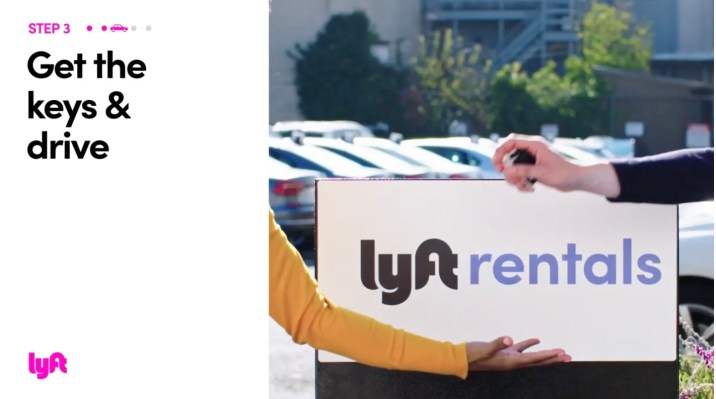Lyft expands its rental business with Sixt partnership - 2 minutes read
 Lyft continues to expand beyond its core ride-hailing business into bikes, scooters, transit and now rental cars. The company said Thursday that it’s taking Lyft Rentals, a pilot program that launched in December, and expanding it through a partnership with Sixt.
Lyft continues to expand beyond its core ride-hailing business into bikes, scooters, transit and now rental cars. The company said Thursday that it’s taking Lyft Rentals, a pilot program that launched in December, and expanding it through a partnership with Sixt.Lyft Rentals initially gave folks in Los Angeles and San Francisco the ability to rent vehicles through its app, which might be traditionally used to hail a ride or grab a shared scooter. The pilot was successful enough to warrant an expansion, but with one notable change. Lyft owns and operates the rental fleet in Los Angeles and San Francisco. The new partnership will shift that responsibility to Sixt, a global rental car company with more than 70 locations in the United States. Lyft said it will continue to own and operate the rental fleet in Los Angeles and San Francisco.
The car rental option via the Sixt partnership will initially expand to Las Vegas, Miami and Seattle. Lyft said it plans to expand to all cities within the Sixt rental network in the U.S. in the coming months.
Customers can open the Lyft app to find a selection of cars that can be rented directly from the “Rentals” tab. From here, users can select their vehicle class, reservation dates, location and an option to add insurance coverage. Customers also have the option to select the exact make and model of their vehicle. Lyft said it will provide a $10 credit to be used to hail a ride after dropping the car back at the Sixt lot.
Lyft Rentals shouldn’t be confused with the company’s Express Drive program, which gives people who want to drive on the Lyft ride-hailing app a way to gain access to a vehicle. Express Drive, which is in partnership with Hertz, is aimed at drivers. Lyft Rentals is a consumer product.
Lyft is betting that the partnership with Sixt will allow it to scale quickly without taking on the high capital costs of buying, owning and maintaining the actual vehicles, not to mention the burden of managing the various permits required to operate a rental car company in cities and at airports.
Lyft will receive a commission from each rental made through the app, according to the company.
Source: TechCrunch
Powered by NewsAPI.org